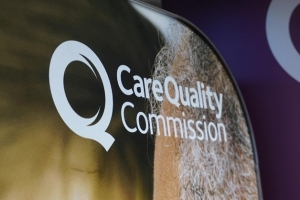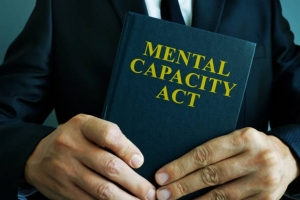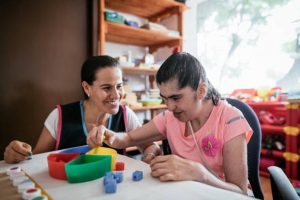A new report from Carers UK has revealed that three-quarters of unpaid carers are anxious about their future, particularly their financial stability once their caring responsibilities end. The State of Caring Survey 2025, which gathered responses from over 10,000 carers, paints a worrying picture of growing financial hardship and declining health among those providing unpaid care across the UK.
Almost half of respondents said they have cut back on essentials such as food, heating, and transport, while a third have turned to credit cards, overdrafts or loans to make ends meet. Many carers also reported taking on extra hours of care over the past year, with more than half saying their caring responsibilities have increased. Physical health is suffering too — 42% said their condition has worsened, and one in five have sustained an injury due to their caring role.
The survey also highlighted the strain on working carers. Sixty-one per cent said caring duties had influenced their career choices, with many reducing their hours or taking lower-paid jobs to cope. The economic impact of carers being unable to work is estimated at £37 billion a year.
Carers UK Chief Executive Helen Walker warned that without urgent reform, unpaid carers will continue to face exhaustion, poverty and burnout. She urged the government to prioritise better rights, financial support and workplace protections to prevent further hardship.
The Access to Work Collective has handed an open letter to the UK Government, backed by over 17,000 signatures, demanding urgent reform of the Access to Work programme. Once seen as a vital source of support for disabled people in employment, the scheme is now facing claims of inefficiency and underfunding, leaving many without the help they need to stay in work.
New figures for 2025 reveal a sharp decline in approvals, with the number of people receiving any form of Access to Work support dropping from 68,730 in the year to March 2024 to 61,670 the following year. Approvals across key support areas — including Special Aids and Equipment, Support Workers, Mental Health Services, and Travel to Work — have also fallen by nearly 10%. Campaigners argue these figures expose the scale of cuts and delays hitting disabled workers.
The Collective, supported by MPs Steve Darling and Carla Denyer through the #AccessToNowhere campaign, says applicants are facing months-long waits for assessments, payments, and renewals. Many have already been forced to reduce hours, turn down work, or leave their jobs entirely as a result of bureaucratic delays and poor communication.
Co-founders Dr Shani Dhanda and Jacqueline Winstanley have urged the Government to halt further cuts, clear existing backlogs, and rebuild the system in collaboration with disabled people. They warn that continued failings are not only undermining independence and wellbeing but also costing the economy by forcing talented individuals out of employment.
Three disability charities — the Down’s Syndrome Association (DSA), Unique, and the Turner Syndrome Support Society (TSSS) — have teamed up to unveil a creative new teaching tool designed to make genetics fun and accessible for children. The Magical Newspaper, produced by International Elf Service, uses enchanting characters and imaginative storytelling to explain DNA, genes, and chromosomes in a way that promotes empathy and inclusion.
Titled Roots of Fantastical Matters: Extra Magical Humans, the resource is aimed at children aged 5 to 13 and encourages open conversations about difference and disability in schools, homes, and community groups. It is suitable for both children with genetic conditions and their peers, helping foster understanding through storytelling and play.
Carol Boys OBE, Chief Executive of the DSA, said the project was designed to combine “magic, imagination, and real science,” making the topic both accessible and meaningful. “We hope it helps challenge misconceptions and makes the experiences of people with genetic conditions visible and relatable,” she said.
Sarah Wynn, CEO of Unique, described the initiative as a “sparkling, story-driven adventure” that turns science into something engaging and enjoyable. The first 500 copies of the Magical Newspaper are available free through the DSA’s website, with further copies obtainable from the partner charities.
Sir Julian Hartley has resigned as chief executive of the Care Quality Commission (CQC), days after an independent investigation was launched into maternity care at Leeds Teaching Hospitals NHS Trust. Having led the trust for a decade, Sir Julian said his continued role at the CQC was “incompatible” with the discussions surrounding the inquiry. His departure follows pressure from families affected by substandard maternity care who had called for him to step down.
The inquiry, ordered by Health Secretary Wes Streeting, will look into repeated failings at Leeds General Infirmary and St James’ University Hospital. Mr Streeting said the investigation aimed to uncover what had “gone so catastrophically wrong” and stressed the need to rebuild public confidence in the regulator.
Families affected by poor care, including Amarjit Kaur and Mandip Singh Matharoo, whose daughter Asees was stillborn in January 2024, welcomed the resignation, questioning how Sir Julian’s appointment had been approved given his history at Leeds. Whistleblowers also expressed relief, citing years of unsafe conditions under his leadership.
In his statement, Sir Julian apologised to families who suffered harm and pledged full cooperation with the inquiry. CQC chair Professor Sir Mike Richards acknowledged the resignation as a significant loss but agreed it was necessary to maintain public trust. The Leeds probe becomes the fifth major investigation into maternity failings at an NHS trust since 2013.
The government’s Mental Health Bill has passed its third reading in the House of Commons, marking a major step towards updating legislation first introduced in 1983. The reforms aim to reduce the number of people with learning disabilities and autistic people being detained in mental health hospitals, shifting the focus towards community-based support and person-centred care.
The Bill proposes greater oversight of compulsory detention and introduces statutory care and treatment plans to ensure patients have a clear route to recovery and discharge. Health Minister Stephen Kinnock announced a new package of measures, including improved community services, education and treatment reviews, and dynamic support registers. It also strengthens safeguards for individuals who cannot consent to treatment, ensuring earlier involvement of an independent second opinion.
Kinnock said the changes reflect modern attitudes toward mental health and will prioritise patient choice and dignity. Reforms include clinical checklists, advance choice documents, nominated persons, and extended advocacy services. Once approved, the next step will be to consult on the code of practice with people who have lived experience, families, and professionals.
Campaigners have welcomed the focus on community care, particularly for over 2,000 autistic people and individuals with learning disabilities currently detained. However, they stress urgent action is needed to prevent unnecessary hospitalisation and ensure the reforms deliver meaningful change.
A coalition of leading health and disability organisations has warned that learning disability nursing in England is on the brink of collapse, risking more preventable deaths among people with learning disabilities. In a joint letter to Health Secretary Wes Streeting, groups including the Royal College of Nursing, Mencap, the Down’s Syndrome Association, and the Challenging Behaviour Foundation urged the Government to urgently recommit to the training and recruitment targets outlined in the NHS Workforce Plan.
The organisations called for renewed investment in training, financial support for students, and funding for employers to cover the cost of apprenticeships and staff backfill. They warned that without action, the profession faces an unsustainable future. The number of learning disability nurses has already fallen by 43% since 2009, with projections showing only a handful likely to qualify in England by 2028. Course closures at universities such as Winchester and Keele have left some regions with no training provision at all.
Campaigners pointed to the latest Learning from Lives and Deaths Review (LeDeR), which found that people with learning disabilities die nearly 20 years earlier than average and are twice as likely to experience preventable deaths.
Mencap’s chief executive Jon Sparkes OBE said the situation was critical, warning that without urgent intervention “this profession will disappear,” and calling for an emergency meeting with ministers to agree a rescue plan.
As autumn settles in, many across the UK are battling coughs, colds, and sniffles - but are chilly temperatures really to blame? According to Dr Oscar Duke, a GP and TV presenter, it’s not the cold itself but our tendency to retreat indoors that fuels the spread. Enclosed spaces create the perfect environment for viruses to circulate, particularly in schools, nurseries, and university halls where close contact is unavoidable.
Distinguishing between a cold, flu, or Covid can be tricky as symptoms often overlap. Colds usually come on gradually, affecting the nose and throat, while flu strikes suddenly with fever, fatigue, and body aches. Covid, however, can cause loss of taste or smell and, in newer strains such as Stratus and Nimbus, a sharp sore throat and digestive upset. Dr Duke advises resting at home but urges those with breathing difficulties or lingering symptoms to seek medical help.
Recovery can be aided by simple remedies. Paracetamol or ibuprofen help ease fever and pain, and staying hydrated is vital. While vitamin C offers limited benefit, vitamin D supplements are recommended during darker months. Decongestant sprays can relieve stuffiness but should only be used for a few days to avoid rebound congestion.
Finally, Dr Duke stresses the importance of vaccination. The NHS flu jab is free for eligible groups, including young children and vulnerable adults, and remains the best defence against severe seasonal illness.
More than one billion people worldwide are now living with mental health disorders, according to new figures released by the World Health Organization (WHO). Conditions such as anxiety and depression are widespread, affecting all communities and age groups, and are a major contributor to disability, rising health costs, and lost productivity. The WHO is calling for urgent investment to expand services, warning that mental health must be treated as a fundamental right rather than a privilege.
The organisation’s latest reports – World Mental Health Today and the Mental Health Atlas 2024 – highlight both progress and persistent shortcomings. While many governments have strengthened policies and introduced community-based programmes, spending has stagnated at just 2% of health budgets worldwide. Huge inequalities remain, with high-income nations spending up to $65 per person on mental health compared with only a few cents in poorer countries. Staffing shortages are also critical, particularly in low- and middle-income regions.
Suicide continues to pose a devastating challenge, with more than 700,000 lives lost in 2021. Current progress suggests the UN target of cutting suicide rates by one-third by 2030 will not be met. Depression and anxiety alone are estimated to cost the global economy over $1 trillion annually.
The WHO is urging governments to step up legal reforms, increase funding, and expand access to community-based care. It argues that scaling up mental health support would not only save lives but also strengthen societies and economies worldwide.
The government has confirmed a £500 million investment to deliver England’s first Fair Pay Agreement for adult social care workers, aiming to tackle low pay and poor working conditions in a sector long criticised as undervalued. A new statutory body will be established to bring unions and employers together, tasked with negotiating wages and working conditions, as well as improving recruitment and retention. The plans, underpinned by the Employment Rights Bill, will see the Adult Social Care Negotiating Body created in 2026, with the first Fair Pay Agreement expected to take effect in 2028.
The Fair Work Agency will also be introduced to strengthen enforcement, ensuring providers comply with new standards and preventing exploitation. The £500m sits within a wider £4bn boost for adult social care between 2025-26 and 2028-29, though critics argue it will not stretch far enough. Early analysis suggests the sum could equate to only a modest uplift in hourly pay when shared across the sector’s 1.5 million-strong workforce.
Sector leaders have welcomed the move but caution that meaningful reform requires more than headline funding. The Care Provider Alliance and the Voluntary Organisations Disability Group have both stressed the importance of fully resourced negotiations and local authority support to prevent rising costs being passed on to service users.
Think tanks, including the Health Foundation and the King’s Fund, warn that while the Fair Pay Agreement is an important first step, sustained long-term funding is essential. Without it, they argue, any gains in pay risk being offset by higher care fees or cuts to frontline services.











